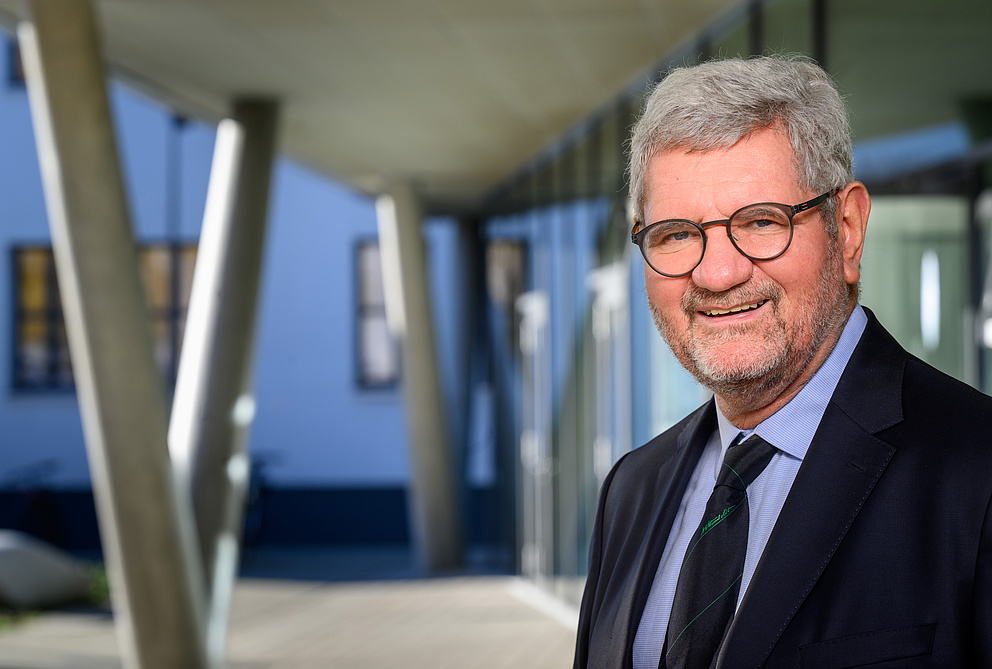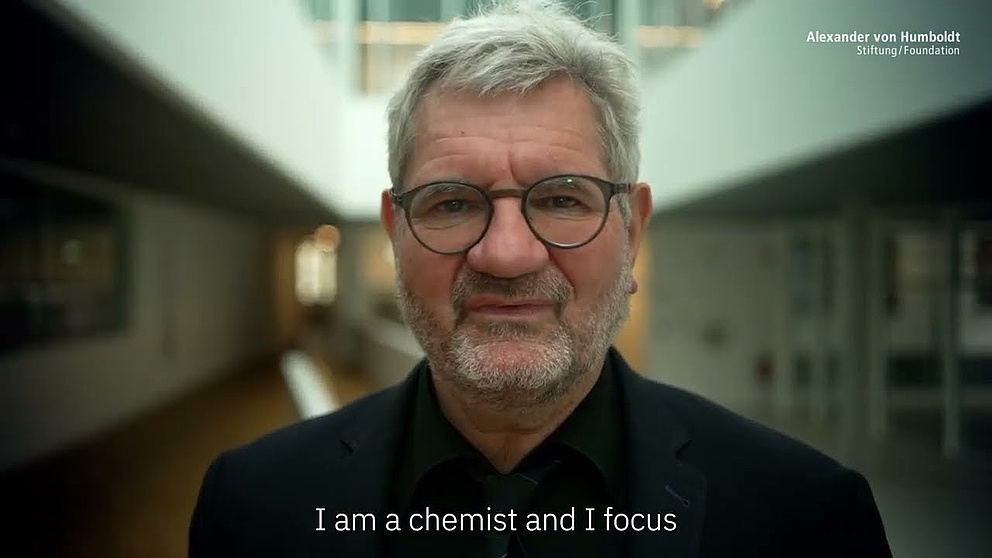
Contact
Press, Communications and Marketing
Tel.: +49 228 833-144
Fax: +49 228 833-441
presse[at]avh.de
Speaking in Berlin today, the new president of the Alexander von Humboldt Foundation, Robert Schlögl, called for investing in international scientific collaboration. “We need science and academia in order to solve our problems − within a framework of international exchange. Scientific knowledge is acquired only when we examine the exact same thing from different angles. When these angles are narrowed, in professional or national terms, the broader context − the big picture − gets lost”, said the chemist and energy conversion expert, who took over the helm at the Foundation on 1 January 2023. “Because it is so diverse, the Alexander von Humboldt Foundation’s network with its more than 30,000 researchers around the world can make very valuable contributions in this connection. It is simply not focused on any specific discipline or country”, Schlögl stressed.
Germany should make greater use of international perspectives – for instance, to speed up implementation and reduce red tape, noted Schlögl. For example, in the area of transitioning its energy systems, Germany is in a very good position when it comes to basic research and complex large-scale facilities. “However, we are severely hobbling ourselves through our regulatory frameworks and protracted discussions, rather than venturing forward and putting new technologies into practice”, Schlögl commented. As a result, Germany is at a disadvantage compared to competitors like the USA. “We need a sensible mix of German thoroughness and the American hands-on approach! That is what is good about the “Humboldt style” of exchanging and sharing science and scientific information. We can learn a lot from one another”, Schlögl added. As an example, he cited the amount of energy consumed in the production of electro fuels. “New technologies must be allowed to develop and mature. When this happens, they will soon be more efficient. But Germany and Europe must start now with alternative fuels in order to move out of the slow lane and into the fast lane”, said the new president of the Foundation.
Schlögl wants to make better use of the expertise offered by the individuals sponsored by the Foundation and aims to strengthen the Humboldt network in countries whose potential is not being fully realised. Many countries of the Global South, he said, are underrepresented in cutting-edge science. In some cases, this underrepresentation extends even to the Humboldt network. “One of my goals is to increase the diversity among the individuals sponsored by the Foundation. Excellent science is not a question of one’s geographical origin. In our network, there are many excellent researchers who drive progress and development in their native countries – particularly in Africa. Their efforts range from the fight against diseases like malaria and extend to work to promote democracy and women’s rights all the way to developing technologies for green energy or for protecting the environment and people’s health. Research in Germany is losing out because we often do not know of this potential and do not integrate it enough”, Schlögl stressed.
Robert Schlögl taught and conducted research as a professor of inorganic chemistry at Goethe University in Frankfurt am Main. He was a founding director and later managing director at the Max Planck Institute for Chemical Energy Conversion in Mülheim an der Ruhr until 2022. He is also a director at the Fritz Haber Institute in Berlin.
He is an internationally renowned and well-connected scientist. His research focus is energy conversion processes and catalysts. His work has contributed to a new understanding of catalytically active materials. As an expert for energy systems of the future and the complex challenges arising in connection with transitioning the current energy system to renewable forms of energy, he is also very experienced and highly in demand in the area of political consulting and science communication. For example, he has served as the scientific director of the Kopernikus and Carbon2Chem projects which were funded by the Federal Ministry of Education and Research in connection with Germany’s efforts to convert to renewable energy. He has received numerous awards, including the Eni Award in the category Energy Transition.
In addition to his research work, Robert Schlögl is active nationally and internationally on numerous committees and advisory boards. He is vice-president of the German National Academy of Sciences Leopoldina, a Fellow of the Royal Society of Chemistry in London, and a member of several other academies.
The Alexander von Humboldt Foundation and Robert Schlögl have long-standing ties: He was a member of the Committee for the Allocation of Humboldt Research Awards from 2010 to 2019 and has served several times as an academic host for individuals sponsored by the Foundation.
Robert Schlögl was nominated to be the Foundation’s next president by an international appointments committee. His nomination was unanimously approved by the Board of Trustees. Federal Minister for Foreign Affairs Annalena Baerbock appointed him to this office for a period of five years starting 1 January 2023.
Digital press kit
- Robert Schlögl's curriculum vitae
- Press photo of Robert Schlögl (© Humboldt-Stiftung/elbmotion)
- Robert Schlögl speaking on ARD alpha “Campus Talks” (2020): Keine Energiewende ohne Katalyse (No transformation of the energy system without catalytic processes)
- Ambitions and programmes of the Humboldt Foundation (PDF, 6 MB)
- Exzellenz verbindet - be part of a worldwide network (PDF, 7 MB)
- Humboldt Kosmos 114/2022 (PDF, 5 MB)
- Newsletter of the Humboldt Foundation
(Press release 3/2023)
Every year, the Alexander von Humboldt Foundation enables more than 2,000 researchers from all over the world to spend time conducting research in Germany. The Foundation maintains an interdisciplinary network of well over 30,000 Humboldtians in more than 140 countries around the world – including 63 Nobel Prize winners.


